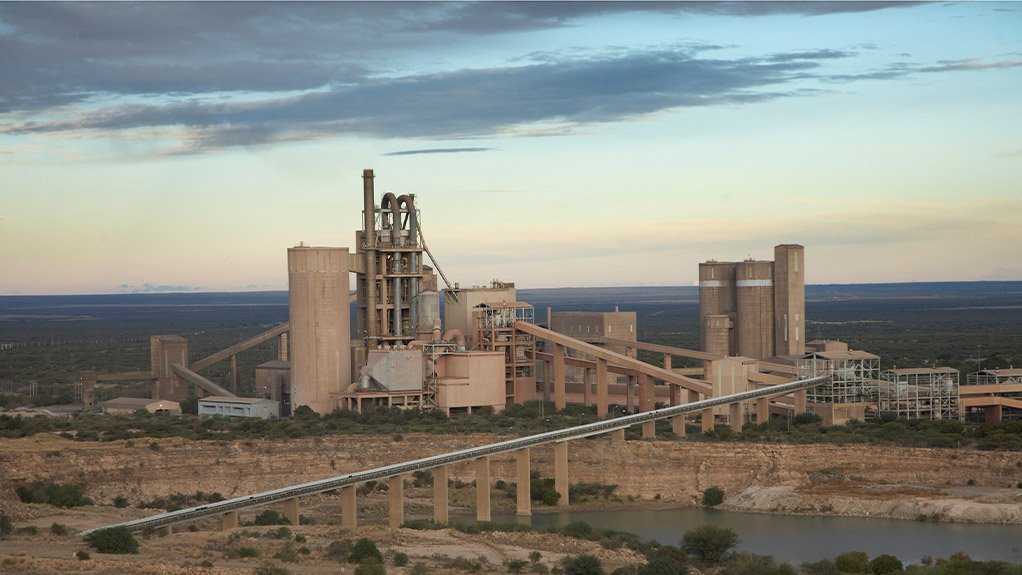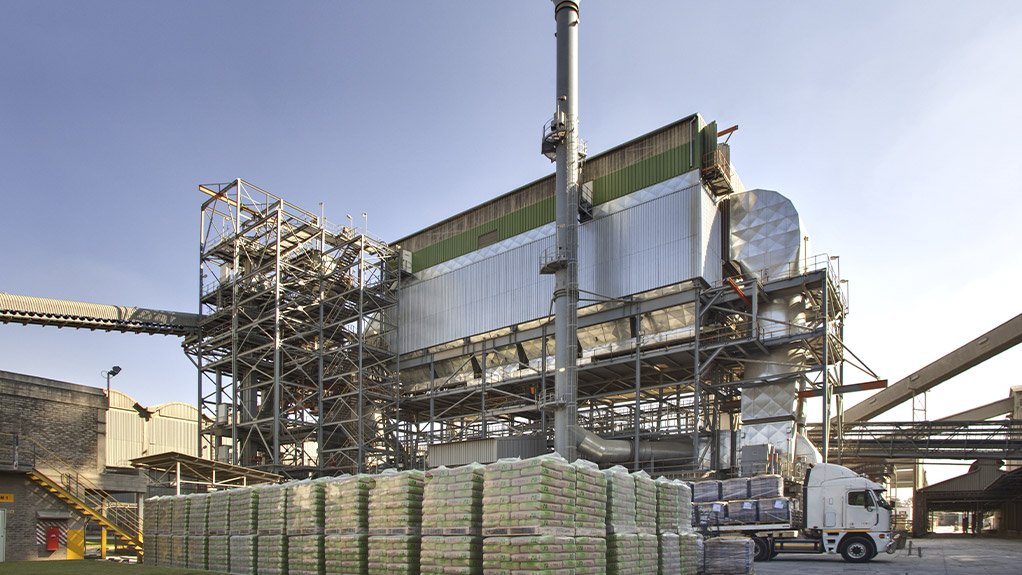Cutting carbon emissions with cement extenders



AfriSam has reduced its emission to below both the global and country average
AfriSam has reduced its CO2 emissions per tonne of cementitious material by 33% since 1990
This article has been supplied.
The science of substituting clinker in cement with a portion of alternative cementitious materials has paved the way for substantial gains in decarbonisation.
According to AfriSam process engineer, Marieta Buckle, the company has reduced its carbon dioxide emissions per ton of cement by 33% since 1990. An important factor in this sustainability journey has been the use of extenders – mainly fly ash and granulated blast furnace slag.
“We have been on this journey for many years before buzzwords like ‘net zero’ were in common use,” says Buckle. “Our Project Green Cement began in 2000, involving significant research and development being invested; among the outcomes, we were able to launch our Eco Building Cement in 2010 as the lowest carbon footprint product.”
AfriSam became arguably the world’s first construction materials supplier to ‘carbon footprint’ all our production operations, including cement, aggregate and readymix concrete, she notes. Its carbon dioxide rating system indicates each product’s carbon footprint relative to Ordinary Portland Cement (OPC).
Buckle explains that producing clinker is the most energy intensive aspect of cement manufacturing – and is therefore a prime driver of carbon dioxide emissions. A central strategy at AfriSam has therefore been to promote decarbonisation by reducing the portion of clinker in cement while maintaining its strength and other properties. As an added advantage the utilisation of extenders also enables formulation of cement products that have improved characteristics specific to the application.
“AfriSam’s extensive research and development effort has been able to develop a cement mix that comprises up to 70% of alternative materials,” says Buckle. “Such a mix would contain only 30% of clinker while still providing the required cementitious properties for the application. Importantly, it consumes less energy – and generates fewer carbon emissions – in the production process.”
Its ongoing achievements in this field are reflected in the statistics. AfriSam’s carbon emissions per tonne of cement produced is – at 598 kg in 2021 – is considerably lower than the 671 kg average among South African cement producers, measured in 2016. It is lower, too, than the global average of 642 kg of carbon emissions per tonne of cement.
“By using what are essentially waste materials like fly ash and slag, we can leverage the energy that has already been consumed in generating them as by-products,” she says. “Apart from the value of recycling a waste product, we can make our cement production gradually more sustainable by reducing the energy that is required.”
Article Enquiry
Email Article
Save Article
Feedback
To advertise email advertising@creamermedia.co.za or click here
Press Office
Announcements
What's On
Subscribe to improve your user experience...
Option 1 (equivalent of R125 a month):
Receive a weekly copy of Creamer Media's Engineering News & Mining Weekly magazine
(print copy for those in South Africa and e-magazine for those outside of South Africa)
Receive daily email newsletters
Access to full search results
Access archive of magazine back copies
Access to Projects in Progress
Access to ONE Research Report of your choice in PDF format
Option 2 (equivalent of R375 a month):
All benefits from Option 1
PLUS
Access to Creamer Media's Research Channel Africa for ALL Research Reports, in PDF format, on various industrial and mining sectors
including Electricity; Water; Energy Transition; Hydrogen; Roads, Rail and Ports; Coal; Gold; Platinum; Battery Metals; etc.
Already a subscriber?
Forgotten your password?
Receive weekly copy of Creamer Media's Engineering News & Mining Weekly magazine (print copy for those in South Africa and e-magazine for those outside of South Africa)
➕
Recieve daily email newsletters
➕
Access to full search results
➕
Access archive of magazine back copies
➕
Access to Projects in Progress
➕
Access to ONE Research Report of your choice in PDF format
RESEARCH CHANNEL AFRICA
R4500 (equivalent of R375 a month)
SUBSCRIBEAll benefits from Option 1
➕
Access to Creamer Media's Research Channel Africa for ALL Research Reports on various industrial and mining sectors, in PDF format, including on:
Electricity
➕
Water
➕
Energy Transition
➕
Hydrogen
➕
Roads, Rail and Ports
➕
Coal
➕
Gold
➕
Platinum
➕
Battery Metals
➕
etc.
Receive all benefits from Option 1 or Option 2 delivered to numerous people at your company
➕
Multiple User names and Passwords for simultaneous log-ins
➕
Intranet integration access to all in your organisation




















